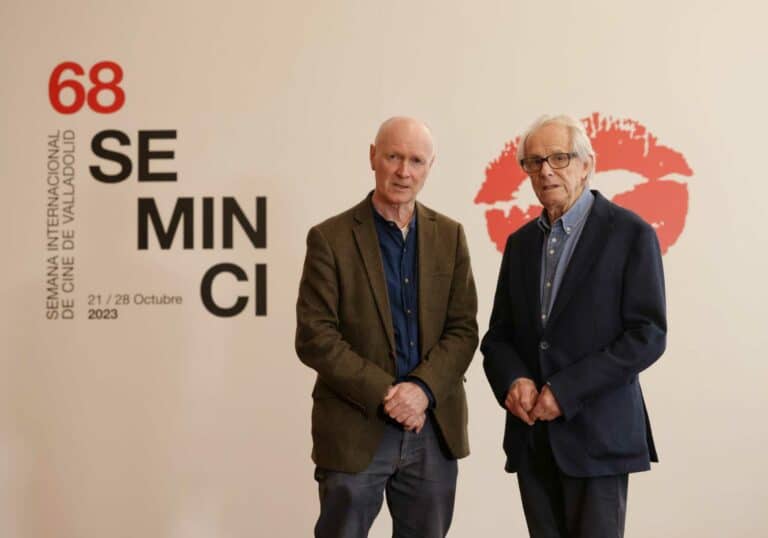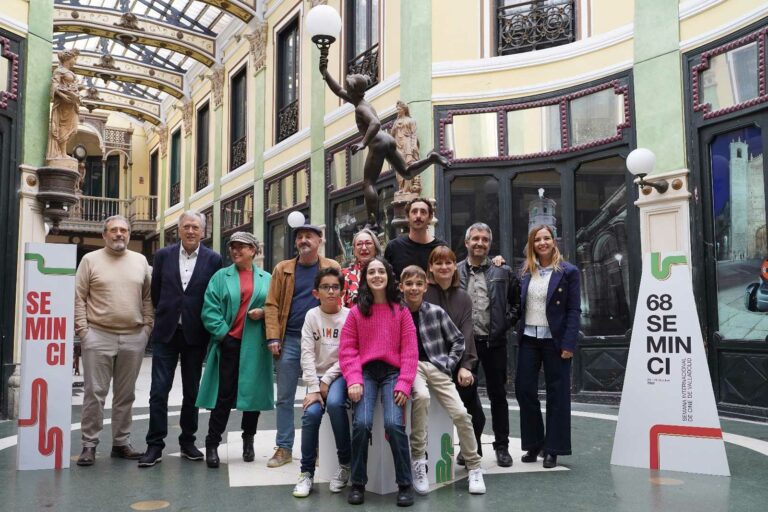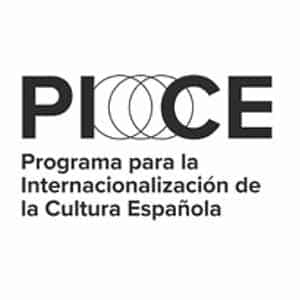
10/23/2019.- Marc Serena presented this Wednesday in Seminci’s DOC.España section his third documentary work, El escritor de un país sin librerías: a film that reflects the current cultural, social and political situation of Equatorial Guinea as illustrated by the story of writer Juan Tomas Ávila Laurel, who also attended the film’s premiere at the Valladolid Festival.
With one of the highest per capita incomes in the whole of Africa and in possession of large resources, the country nevertheless lacks hospitals, schools and even drinking water. Against this backdrop, and guided by the voice-over narration (both in Spanish and in his mother tongue) of the renowned Guinean intellectual, Serena’s film delves into the country’s present-day reality.
The fimmaker pointed out that making this film was “a very complicated process” due to the impediments encountered by the shooting crew. The project began in 2011 as Serena tried to enter the African country for the first time, but was denied a visa.
Funding turned out to be one of the biggest problems in making this documentary. “We needed money, but we could not tell what we were doing because we were afraid that someone would want to stop the project, so we had to resort to anonymous crowdfunding,” explained the director during the Q&A that followed the screening, which was joined by several Guinean citizens who were among the audience.
Juan Tomás Ávila Laurel was born in Malabo, the capital of Equatorial Guinea, in 1966, when the country was still a Spanish colony under Franco’s regime. The writer shared his views on colonialism: “There is a colonial legacy that is useful even if we want to erase it. We use what is still present in the country because it is necessary to move forward”. Equatorial Guinea’s political situation forced him in 2011 to seek refuge in Spain after his denunciation of Teodoro Obiang’s dictatorship.
El escritor de un país sin librerías is not the first film by the Catalan journalist, writer and director that screens at Seminci. Already in 2015, his documentary Tchindas, which eventually won the Nigerian equivalent of Hollywood’s Academy Awards, premiered in the same section of the Valladolid Festival. In 2018, he directed Peixos d’aigua dolça (en aigua salada).





















































